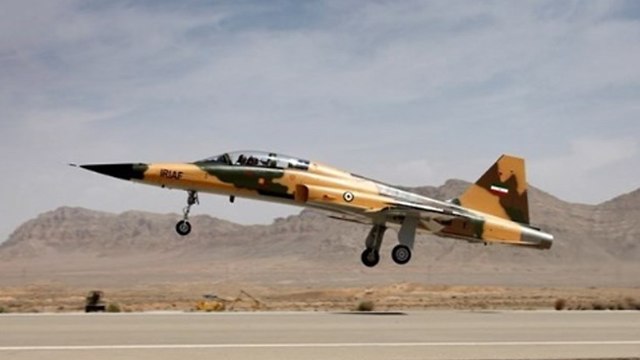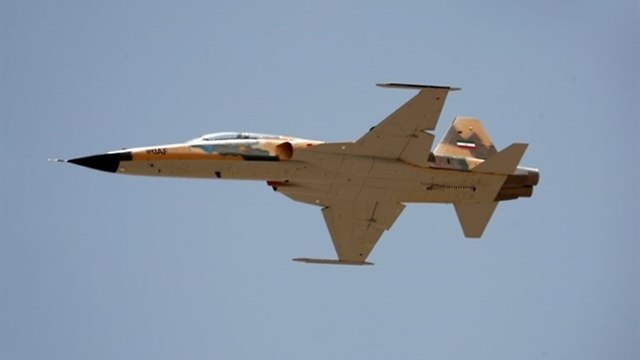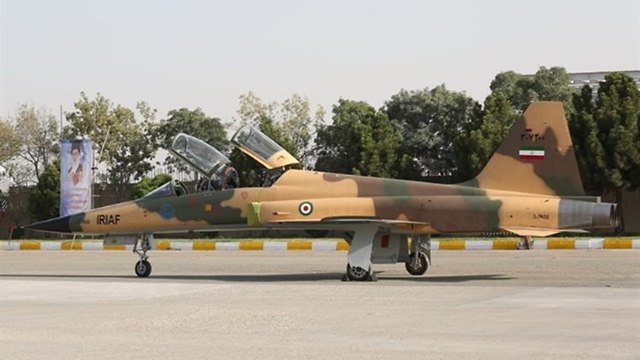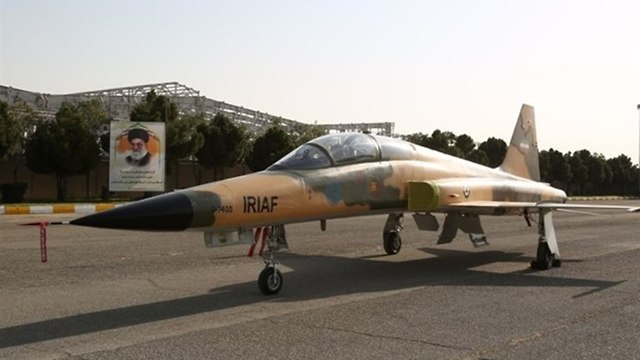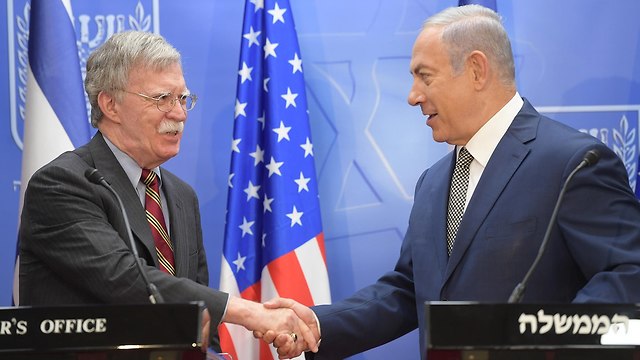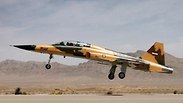
The fighter jet called Kowsar was fully domestic made, capable of carrying various weapons, and will be used for short aerial support missions, Tasnim news agency said.
State television showed live pictures of a ceremony in Tehran in which the fighter jet flew in the presence of President Hassan Rouhani, a day before the country's National Defense Industry Day.
Rouhani said the Islamic Republic's military prowess was what deterred Washington from attacking it, adding that under President Trump the United States was becoming isolated even from its own allies.
"We should make ourselves ready to fight against the military powers who want to take over our territory and our resources," Rouhani said in a speech broadcast live on state television ahead of Wednesday's National Defence Industry Day.
"Why does the United States not attack us? Because of our power, because it knows the consequences," Rouhani added.
Last week, Iran's Supreme Leader Ayatollah Ali Khamenei also said the United States would avoid any military confrontation with Tehran because of Iranian military might.
Khamenei has rejected Trump's offer of unconditional talks on a new nuclear deal, prompting Trump to tell Reuters in an interview on Monday: "If they want to meet, that's fine, and if they don't want to meet, I couldn't care less.
Rouhani compared the sanctions on Iran with the US trade war with China and its new tariffs on some imports from Turkey and European countries.
"It's not only us who do not trust America. Today even Europe and China do not trust them; even American allies like Canada have lost their trust," he said.
Iran has sent weapons and thousands of soldiers to Syria to prop up President Bashar Assad in the country's seven-year-long civil war. However, due to the lack of a powerful air force Iran asked Russia to provide air power.
Iran's air force has been limited to perhaps a few dozen strike aircraft using either Russian or ageing US models acquired before the 1979 Iranian revolution.
Iran unveiled in 2013 what it said was a new, domestically built fighter jet, called Qaher 313, but some experts expressed doubts about the viability of the aircraft at the time.
Iran has developed a large domestic arms industry in the face of international sanctions and embargoes that have barred it from importing many weapons
Iran’s saber rattling is the latest act that could be interpreted by the US and Israel as a deliberate provocation as Washington ratchets up sanctions on Tehran following President Trump’s withdrawal from the Iran nuclear deal in May.
With Iranian support for terror proxies such as Hezbollah in Lebanon and Syria and Houthi rebels in Yemen, the ayatollah-led regime has occupied a prominent spot on the US radar, much to the delight of Iran’s arch-nemesis, Israel.
On Monday, US National Security Advisor John Bolton said in Jerusalem that preventing Iran from acquiring a nuclear weapon is of the 'highest importance' for the US, while decrying the “wretched” nuclear accord signed under the Obama administration.
“I think your analysis of the issues we have to face is right on spot target," said Bolton, who delivered his remarks after Prime Minister Benjamin Netanyahu in a joint press conference in Jerusalem.
In February, Netanyahu said that Israel would act against Iran, not just its allies in the Middle East, if needed, reiterating that Tehran was the world's greatest threat.
Holding a piece of what he said was an Iranian drone after its incursion into Israeli airspace earlier that month, Netanyahu told the Munich Security Conference: "Israel will not allow the regime to put a noose of terror around our neck."
"We will act if necessary not just against Iran's proxies but against Iran itself," he said, listing the threats that Tehran poses to Israel and the world.















